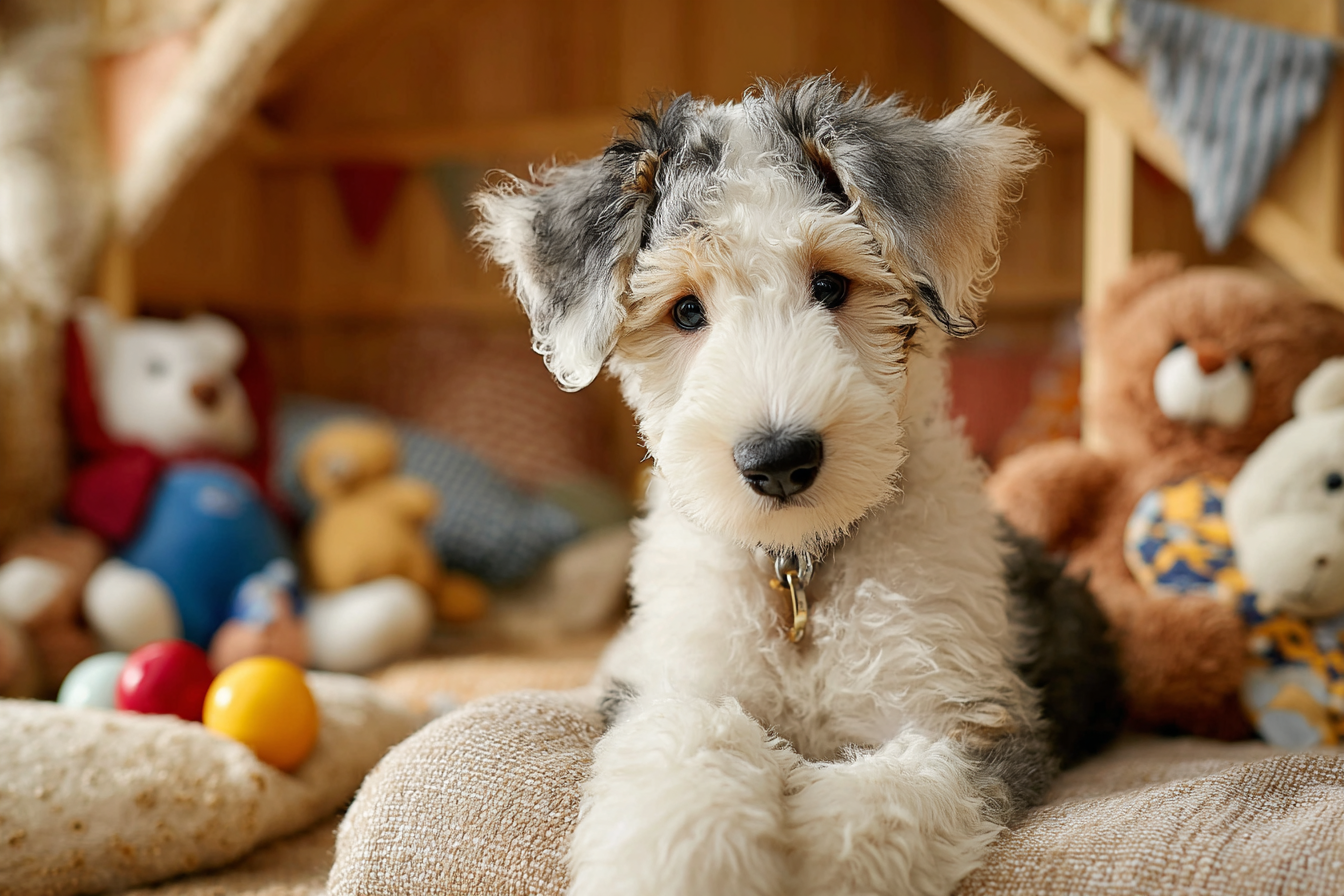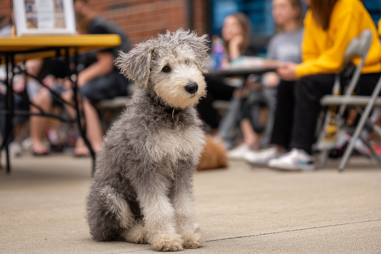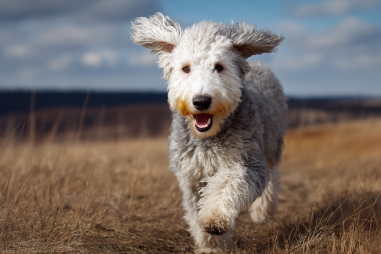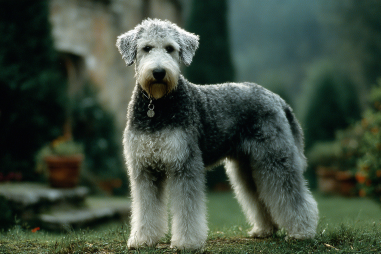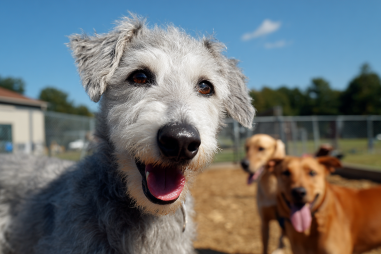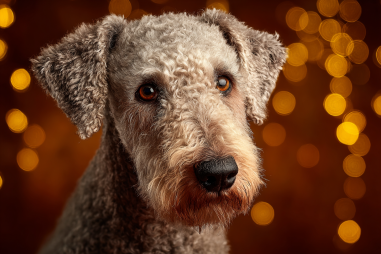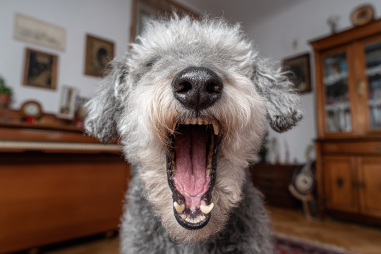Welcoming a Bedlington Terrier puppy into your home is an exciting and joyous experience. Known for their distinctive lamb-like appearance and affectionate nature, Bedlington Terriers make wonderful companions. However, like all puppies, they have specific needs that require attention and care to ensure they grow up healthy and happy. This essential guide covers everything new owners need to know about feeding, grooming, training, and maintaining the health of their Bedlington Terrier puppy.
Preparing for Your Puppy
Before bringing your new Bedlington Terrier puppy home, it’s important to prepare your living space to make the transition as smooth as possible. Puppies are curious and energetic, so creating a safe, comfortable environment is key. Start by designating a quiet area where your pup can rest, such as a crate or a cozy bed. This space should be free from hazards like loose wires or small objects they could swallow.
Gather essential supplies including food and water bowls, high-quality puppy food, chew toys, grooming brushes, and training pads if you plan on housebreaking indoors. Bedlington Terriers are known for their intelligence and energy, so having interactive toys and exercise opportunities ready will help keep them stimulated and content.
It’s also a good idea to puppy-proof your home by securing cabinets and trash cans, removing toxic plants, and making sure cleaning products and medicines are out of reach. Preparing in advance helps your new puppy feel safe and makes the adjustment period easier for everyone involved.
Feeding and Nutrition Recommendations
Proper nutrition is fundamental to your Bedlington Terrier puppy’s growth and development. Puppies have different dietary needs than adult dogs, so selecting the right food and feeding schedule is crucial. Look for a high-quality puppy formula that lists meat as the first ingredient and contains essential nutrients like protein, fat, vitamins, and minerals.
Most Bedlington Terrier puppies do well on a balanced diet of dry kibble formulated for small to medium breeds, but you can also incorporate wet food or a vet-approved homemade diet if recommended. Avoid feeding table scraps or human food, as this can upset their digestive system and lead to poor eating habits.
It’s advisable to feed your puppy three to four times a day until they are about six months old, gradually reducing to two meals daily. Always make fresh water available. Monitor their weight and adjust portions accordingly to avoid overfeeding, which can cause obesity or growth problems.
Grooming Essentials for Bedlington Puppies
One of the most distinctive characteristics of the Bedlington Terrier is its unique coat—a soft, curly, wool-like texture that requires regular grooming. Start grooming your puppy early to get them accustomed to brushing, bathing, and handling. This helps build a positive grooming routine and makes maintenance easier as they grow.
Brushing your Bedlington puppy’s coat at least two to three times a week will prevent mats and tangles while distributing natural oils for a healthy shine. Use a slicker brush or a comb designed for curly coats. Regular trimming every 6 to 8 weeks is necessary to maintain the breed’s signature look and to keep the coat manageable.
Bathing should be done as needed, typically every 4 to 6 weeks, using a gentle, puppy-safe shampoo. Pay special attention to ears and paws, as Bedlingtons are prone to ear infections due to their folded ears. Clean their ears regularly with a vet-recommended solution and check for signs of redness or odor.
Don’t forget to trim their nails every few weeks and brush their teeth to promote overall health and hygiene. Early grooming sessions can also be a bonding experience and help your puppy feel comfortable with being handled.
Early Training and Socialization
Training and socializing your Bedlington Terrier puppy from an early age sets the foundation for a well-mannered adult dog. Bedlingtons are intelligent and eager to please but can be stubborn if not guided consistently. Positive reinforcement techniques such as treats, praise, and playtime work best for encouraging good behavior.
Begin with basic commands like sit, stay, come, and leash walking. Keep training sessions short and fun to maintain your puppy’s interest. Consistency and patience are key during the learning process.
Socialization is equally important. Expose your puppy to a variety of people, environments, sounds, and other animals in a controlled and positive manner. This helps prevent fearfulness or aggression later in life. Puppy classes and controlled playdates provide great opportunities for safe interaction.
Remember that early experiences shape a dog’s temperament, so the more positive, varied exposure your puppy has, the more confident and adaptable they will become.
Health Checks and Vaccinations
Maintaining your Bedlington Terrier puppy’s health involves regular veterinary visits, vaccinations, and preventive care. Schedule a vet appointment soon after bringing your puppy home to establish a health baseline and discuss an appropriate vaccination schedule.
Core vaccinations typically include protection against distemper, parvovirus, hepatitis, and rabies. Your vet may also recommend additional vaccines based on your location and lifestyle, such as kennel cough or Lyme disease. Keep a record of all vaccinations and follow up with booster shots as directed.
Regular health checks also involve deworming, flea and tick prevention, and monitoring for breed-specific conditions. Bedlington Terriers can be prone to copper toxicosis, a liver condition, so it’s important to watch for signs and discuss genetic testing with your vet if necessary.
Maintaining good dental hygiene and ensuring your puppy gets enough exercise and a balanced diet contribute to their overall well-being. Early detection of any issues helps ensure timely treatment and a healthy life.
Ongoing Care Tips to Keep Your Bedlington Terrier Happy
Caring for your Bedlington Terrier puppy is a rewarding commitment that extends well beyond the early months. As your puppy grows, continue providing a balanced diet, regular exercise, and mental stimulation. Bedlingtons are active dogs who enjoy walks, playtime, and engaging activities like agility or scent games.
Maintain a consistent grooming schedule and stay vigilant about health checks to catch any changes early. Social interactions should continue throughout their life to keep them sociable and confident.
Building a strong bond through training, play, and affection will result in a loyal and loving companion. Remember, every dog is unique—pay attention to your Bedlington’s individual personality and needs, and adjust your care accordingly.
With time, patience, and love, your Bedlington Terrier puppy will grow into a well-rounded, healthy adult dog who brings joy to your life for years to come.

